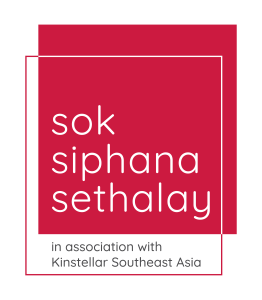Regulating Competition in Brunei Darussalam – Introducing the Competition Order
In the past, the only means of checking equity in pricing and competition in Brunei was the Price Control Act. However, as Brunei ventures into dealings with foreigners and explores policies which attract more foreign direct investment (“FDI”) into the country, the need for a dedicated competition law has naturally arisen. This need is materialised in the form of the country’s Competition Order 2015.
The introduction of the Competition Order 2015 is aimed at deterring market manipulation and cartel practices that may affect market efficiency. The objective of the Competition Order 2015 is to promote and maintain fair and healthy competition, as well as to enhance market efficiency and consumer welfare in Brunei Darussalam. This legislation encourages more foreign investment into the country, while also protecting consumers against harmful business practices such as price-fixing and limiting supply. In short, the Competition Order 2015 expects to create a better business environment and attract more FDI into the country by lowering the cost of doing business and improving consumer welfare.
Following the introduction of the Competition Order 2015, a Competition Commission was established to oversee and act on competition matters as mandated in the law. Such mandates include adjudicating anti-competitive cases and imposing penalties on companies found to infringe the Competition Order 2015.
Currently, the Competition Order is not in force as it will be enforced in phases. A transitional period will need to be introduced and will phase in after advocacy work in familiarizing and developing a competition-aware culture has been carried out in Brunei.
The phased approach will focus on tackling anti-competitive agreements, abuse of dominant positions and anti-competitive mergers thus giving all parties sufficient time to prepare for the orderly enforcement of this Order.
Below are a few key provisions of the Competition Order 2015:
1. Anti-competitive agreements and practices are clarified under the Competition Order 2015.
Ch. 2, Section 11(1) of the Competition Order 2015 specifically describes the features of agreements, decisions or concerted practices which may be taken as preventing, restricting or distorting competition within the country. Among others, agreements, decisions and concerted practices which directly or indirectly fix prices, limit or control production, and share markets or sources of supply are deemed to prevent, restrict or distort competition under this sub-heading.
2. The Competition Order 2015 clearly defines undertakings which are deemed to constitute an abuse of dominant position.
Abuse of dominant position is naturally prohibited under Brunei’s new Competition Order 2015. What this law does is that it streamlines and defines conduct which constitutes an abuse of dominant position in Brunei Darussalam. Ch. 3, Section 21(1) of the Competition Order 2015 categorises the following conduct as abuse of dominant position –
- predatory behavior towards competitors;
- conduct which limits the production, markets or technical development to the prejudice of consumers;
- conduct which applies dissimilar conditions to equivalent transactions with other trading parties, thereby placing them at a competitive disadvantage; or
- conditions which subject the conclusion of contracts to acceptance by the other party of supplementary obligations which, by nature or according to commercial usage, have no connection with the subject of the contracts.
3. Under the Competition Order 2015, mergers which are expected to result in the substantial lessening of competition in any market are prohibited.
Ch. 4, Section 23(1) prohibits the substantial lessening of competition in any market through mergers. However, not all mergers are prohibited from taking place. The Section 23 prohibition does not apply to mergers listed in the Fourth Schedule of the Competition Order 2015, e.g. mergers approved by a government Ministry or regulatory authority other than the Competition Commission, mergers under the jurisdiction of a regulatory authority other than the Competition Commission, mergers involving undertakings on specified activities defined in the Third Schedule of the Competition Order 2015, etc.
4. Individuals who commit an offense for which no penalty is expressed under the Competition Order 2015 may be nevertheless guilty and liable to a fine not exceeding BND10,000, imprisonment not exceeding 12 months or both.
Perhaps the most troubling issue introduced by the new law is the fact that, under the Competition Order 2015, individuals who commit offenses that are not expressly subject to a penalty may, if found guilty and convicted for a breach, be liable to a fine not exceeding BND10,000, imprisonment for a term not exceeding 12 months or both. Additionally, businesses found practicing bid or tender rigging, anti-competitive mergers (cartel agreements) and abuse of dominance may be penalised up to 10% of a 3 year turnover.
5. Parties have recourse to appeal to the decisions of the Competition Commission.
While the Competition Commission is the main authority for violations of the Competition Order 2015, Section 59(1) does allow recourse to parties whose conduct the Commission has made a decision against. Such appeals must be made to the Competition Appeal Tribunal within a period of time prescribed by the Competition Order 2015. As background, the Competition Appeal Tribunal consists of not more than 30 members appointed by the Minister on the basis of their abilities and industry, commerce, administration or professional experiences. The main provision on the Competition Appeal Tribunal is Section 60(1) of the Competition Order 2015.
If you have any questions or require any additionl information, you may contact Mohd. Rozaiman Abdul Rahman or the ZICO Law Partner you usually deal with.
This alert is for general information only and is not a substitute for legal advice.



